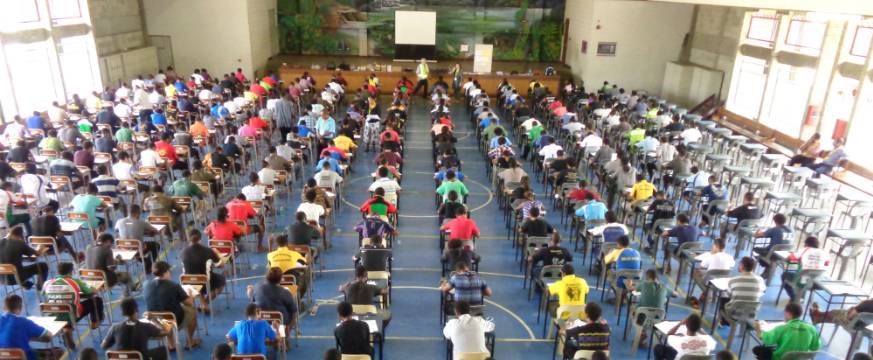
Improving university admissions in PNG
Research 12 Jan 2017 4 minute readThe Papua New Guinea (PNG) University of Technology (UNITECH) receives thousands of applications each year and is implementing policies to ensure a fairer, more transparent selection process to ensure only candidates who have the capacity to benefit from tertiary education are selected.
The university’s Vice Chancellor’s Admission Test Committee conducted a feasibility study in early 2016 related to introducing a compulsory admission test for all school leaver (Grade 12) applicants to their courses for 2017 entry and beyond. Following this study, the UNITECH management team endorsed a plan to use the Special Tertiary Admissions Test (STAT) to introduce a common measurable element in their selection process.
UNITECH Vice Chancellor Dr Albert Schram said, ‘Our Academic Board and Council strongly supported an independent and impartial evaluation of the candidates for all our programs. The findings of the recent enquiry into grade fraud chaired by Dr Sinebare played an important role in this.’
STAT is a tertiary aptitude test developed and managed by the Australian Council for Educational Research (ACER). It is used widely by universities in Australia, as well as by some universities in New Zealand, Ireland and the UK. The results inform the admissions process for participating universities, giving candidates an opportunity to demonstrate their ability to cope with tertiary studies.
As ACER’s Project Director for STAT, Shelley McLean, explains, the test’s purpose is to measure candidates' capacity to perform, rather than their demonstrated performance at the school level.
“There are many factors that can influence a person’s achievement in the final years of school,” Ms McLean said. “STAT enables universities to consider candidates’ inherent aptitude or ability, and not just their achievement to date.”
ACER’s work for UNITECH began with the creation of STAT P, a test form adapted from STAT Multiple Choice, reviewed for language and cultural issues specific to PNG. The aim is for the test to be accessible to most of the candidates, while still providing enough challenge to differentiate among the candidature.
The inaugural STAT P test program was held from 8-9 November 2016 in six locations across PNG. Around 1400 Grade 12 students registered to sit the test.
UNITECH is using STAT P results in conjunction with the Ministry of Education Grade 12 exam results to inform their admissions process and determine which students are likely to succeed at university level study in their programs.
‘UNITECH’s Pro Vice Chancellor, Academic, Dr Augustine Moshi, and his team have done a wonderful job in working with ACER and administering STAT P in six centres across the country. We hope that the other state universities will join in,’ said Dr Schram.
The Secretary of the PNG Department of Higher Education, Research Science and Technology has formally written to UNITECH’s Vice Chancellor to congratulate the university for adopting the STAT aptitude test.
"…[STAT] will assist in improving the quality of the graduate output and increase quality performance in general at the university whilst ensuring that genuine students are enrolled to undertake studies," he wrote.
STAT P will be held annually in November for students applying to commence university study the following year. Applications for the November 2017 sitting of STAT P will open mid-year.
Find out more:
For further information about STAT P or to register to take the test, visit https://statpng.acer.edu.au/
Related research:
‘Evaluation of the Special Tertiary Admissions Test (STAT)’, by Hamish Coates and Tim Friedman, Journal of Higher Education Policy and Management, Vol. 32, Iss. 2, 2010